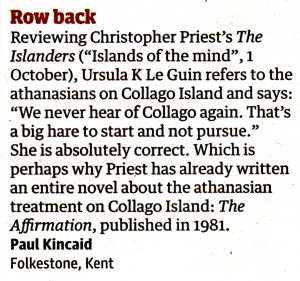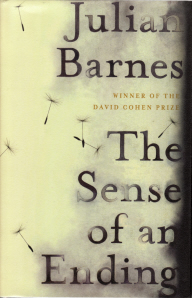The problem with working in the slipstream is that many people misunderstand what you’re trying to do. This is also, of course, the greatest strength: you are free to do whatever you wish with slipstream without having to conform to expectations. Much slipstream is concerned with the fantastic, and this will sometimes add irritation to confusion, in the minds of those who expect genre clichés. A case in point is the critical reaction to Mike Cahill’s new film, Another Earth, which has been to a large extent hostile or uncomprehending.
The film bears a superficial similarity to Lars von Trier’s recent masterpiece, Melancholia, which for me was the best and greatest film I saw in 2011. In both films a previously undetected planet moves into the same planetary space as Earth. In Melancholia the outcome is depicted in the first few moments of the film: a visual prologue of shocking beauty and intensity – in Another Earth the new presence is of an altogether more subtle kind. A duplicate Earth, complete with attendant Moon, hovers in the sky. It has the same appearance: a blue-green sphere with swirling clouds, and a glimpse of the Horn of Africa.
It does nothing. It comes no closer, presents no apparent threat, sends no messages. When radio contact is eventually made it seems that Earth 2 (as the people on our world call it) is identical in every way. Synchronicity is all. The people of that world call their planet Earth, and have even dubbed our world Earth 2. What is it? A previously hidden and unsuspected world from the far side of the Sun (which is the irrelevant explanation offered by Melancholia)? A coincidence? A visual metaphor? An illusion? A glimpse into a parallel dimension? No matter – there it is.
And there is the fantastic element laid out, and is full of slipstream traps. Those who regularly enjoy a sneer at the trappings of science fiction film (sci-fi, as they call it) will wait for the weapons to be armed, the rockets to be launched, the robots to appear, the violent war to begin. They are going to be disappointed, and so will be the fans of that kind of stuff, if they go looking for it. Certainly, many of the film critics wrote reviews that veered between bafflement and hostility — presumably they had geared themselves up for a good and thoroughly enjoyable kicking of another sci-fi blockbuster.
The real story of Another Earth is an altogether quieter one and it occupies roughly 95% of the film. A young woman, Rhoda, celebrates her scholarship to MIT, where she plans to study astrophysics. She celebrates too hard and unwisely drives herself home. She hears a radio announcement of the mysterious appearance of the other planet, squints up drunkenly into the night sky to see the emerging blue shape, and collides head-on with another car. Her life is changed forever, as are the lives of the young family in the second car. She serves a long prison sentence for her criminal act, and emerges shattered. The other Earth hovers bluely in the sky above her. She finds a job as a janitor in a local school. Eventually, she makes tentative contact with the only survivor from the other car and discovers another shattered life. A difficult and emotionally impaired relationship starts to form, based on guilt, sorrow and a need to seek forgiveness. The other Earth hovers bluely in the sky above them, synchronous, silent, portending nothing more than a duplication that cannot be shared. But then there is a hint that the synchronicity ended when that first radio contact was made: the mirror has a tiny crack.
The film was written by Mike Cahill and Brit Marling, two names new to me. Cahill also directed the film and did the photography. Brit Marling plays Rhoda. I am eager to see what they will do next. Another Earth is a brilliant, beautiful and thoughtful film, pure slipstream, deeply felt, completely original.
LINKS. My earlier review of Melancholia is on the “Recent” page of this site. Here are baffled and negative reviews of Another Earth from two critics who normally get things right: Philip French and Peter Bradshaw. On the other hand, Roger Ebert came good. Finally, here is Mike Cahill launching semi-incoherently into the familiar but unavailing explanation of slipstream to a world of deaf ears — his film is better.

